It seems passé: A group of college students heads to the Dominican Republic for spring break.
But in this case the beach is not their destination. Instead, these students have a goal: develop a sustainable, potable water system for the residents of La Recta De Sanita.
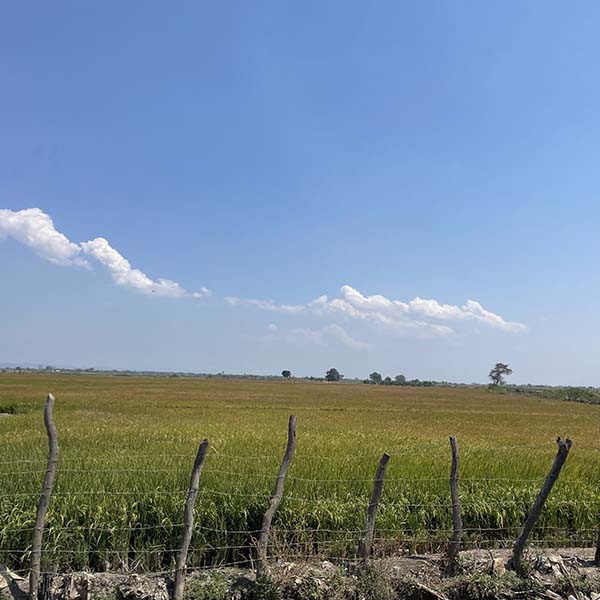 They are members of Lehigh's chapter of Engineers Without Borders (EWB) and began working on this project in the spring of 2022. Thanks to the work of the team, their faculty mentors, and an engaged alumnus, they are set to embark on an assessment trip where they will collect data and meet the community members and project partners to find a feasible solution.
They are members of Lehigh's chapter of Engineers Without Borders (EWB) and began working on this project in the spring of 2022. Thanks to the work of the team, their faculty mentors, and an engaged alumnus, they are set to embark on an assessment trip where they will collect data and meet the community members and project partners to find a feasible solution.
“We have two goals,” says Richard Weisman, professor emeritus of water resources engineering in the Department of Civil Engineering and responsible engineer in charge on this project. “First, our goal is to see what exists and determine possible solutions. Second, we have to assess the community — if they have the social capital in place to maintain that solution.”
La Recta De Sanita sits south of the coastal city of Monte Cristi and just east of the Haitian border. Many of the community’s 900 residents are Haitian immigrants. They rely on an agrarian economy, growing rice and bananas.
But water has been a problem for decades.
The government suspended service to a local water tank in the 1990s. The community drilled wells, but the low elevation made the water high in salinity and contaminated by agricultural runoff. So residents either drank contaminated water or bought bottled water.
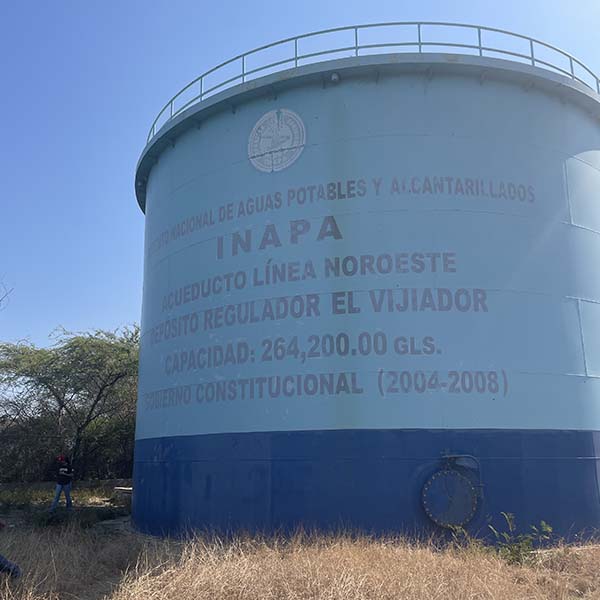 In 2012, the government installed pipes, but in 2014 the aqueduct that supplied that line stopped working. The pressure now is so low that there is little to no water for those, like La Recta De Sanita, at the end of the line. It doesn’t help that other communities further up the line consume more or that farmers along the way siphon off water for their own use.
In 2012, the government installed pipes, but in 2014 the aqueduct that supplied that line stopped working. The pressure now is so low that there is little to no water for those, like La Recta De Sanita, at the end of the line. It doesn’t help that other communities further up the line consume more or that farmers along the way siphon off water for their own use.
The students — Kyra Boston ’24, Elizabeth Bielen ’25, and Estefania Ravelo Reyna ’26 — are excited to travel. For Ravelo Reyna, this is a homecoming.
“I was born and raised in the Dominican Republic,” she says. “I love my country, and this trip allows me to come full circle where I am able to learn about water distribution, translate for my peers, and help my people.”
The students have already been talking about potential solutions based on what they know. To help in those discussions, they tapped Doug Griffes ’70, an environmental engineer who has worked on large-scale water projects across the world, like the design, construction, operation, and maintenance of water treatment facilities in Cairo, Egypt.
Through his roles at CH2M Hill, as an independent consultant, and more recently as a volunteer with Water for People, Griffes has supported similar efforts.
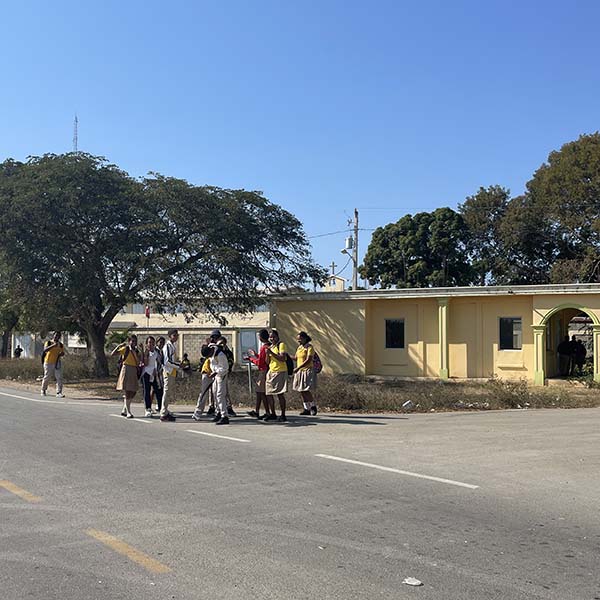 “It is a great introduction to international development at the college age,” he says. “I am always amazed at how students make it happen, planning all aspects of projects. I just serve as an adviser who listens, watches, and guides.”
“It is a great introduction to international development at the college age,” he says. “I am always amazed at how students make it happen, planning all aspects of projects. I just serve as an adviser who listens, watches, and guides.”
Griffes has been present at planning meetings for the trip to La Recta De Sanita as well as supported the chapter’s work with a monetary gift.
“This will be an incredible experience for the students as they design a plan to address the needs of that specific population,” he says.
The population is key as the team listens to community members, hears the perspective of the NGO partner, and works with the government institute on drinking and waste water (INAPA)
On a hot Sunday evening, the team touched down in Santiago. Estefania’s family surprised the members at the airport with greetings and Dominican treats.
They drove out of the city and through the countryside. Their guide was Frederick Payton, co-founder and executive director of AgroFrontera, the NGO partner dedicated to biodiversity conservation and economic livelihoods of small-scale farmers.
The next few days brought meetings with many parties to hear more about the problem, discuss possible solutions, and understand concerns. And drink some amazing coffee.
“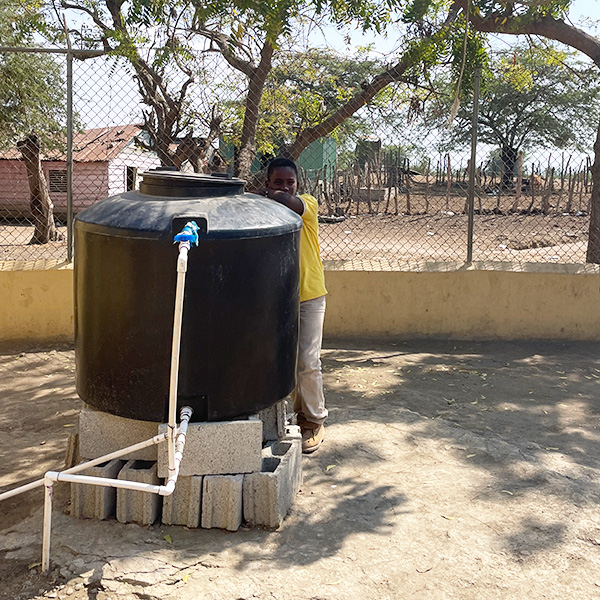 The people in the community are so prepared and excited for this project,” says Boston. “They understood the water system very well and had concrete solutions ready for our input.”
The people in the community are so prepared and excited for this project,” says Boston. “They understood the water system very well and had concrete solutions ready for our input.”
“Gaining community perspective and buy-in is important, so our travel team took detailed notes and gathered many data points,” says Dan Zeroka, engineering technician at Lehigh.
Those data points came from site visits on long, hot days as the team observed the pipes, tanks, and wells. Members also visited a school in the town where students used pit latrines and lacked water. But they made fast friends with the students — it helped that Weisman brought a pile of used baseballs from Goodman Campus to hand out.
Mapping out the pipeline, understanding system demands, and taking elevation readings, the team proposed four possible solutions and then worked to assess the effectiveness of each.
The EWB group also met with INAPA officials who were aligned with the team’s assessment of the problem and ready to form an alliance.
So the team drafted a proposal for the Dominican government.
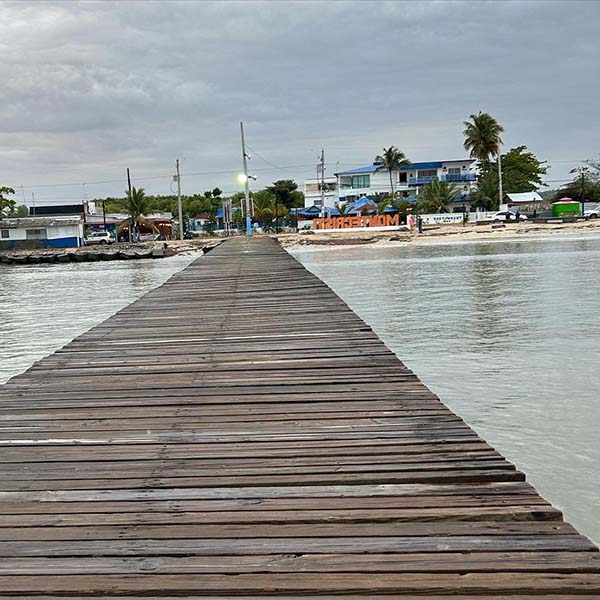 The task before the group now is daunting in terms of fundraising. The students plan to place a T-junction in the line and reroute the flow to the communities. The project is estimated to cost $120,000. Some costs will be covered through federal grants and global aid — USAID, a stalwart in the area, is actively involved and has interest in this project’s success. But the team will also need to raise money.
The task before the group now is daunting in terms of fundraising. The students plan to place a T-junction in the line and reroute the flow to the communities. The project is estimated to cost $120,000. Some costs will be covered through federal grants and global aid — USAID, a stalwart in the area, is actively involved and has interest in this project’s success. But the team will also need to raise money.
The students don’t seem afraid of work. They have already planned a detailed debriefing session for the other members of the Lehigh EWB chapter during their weekly huddle which, fittingly, was held on World Water Day.
“We didn’t get much time to explore the country as tourists,” says Boston. But they did stop for a brief moment prior to their departing flight to at least see the beach. Such is the life of non-spring breakers.